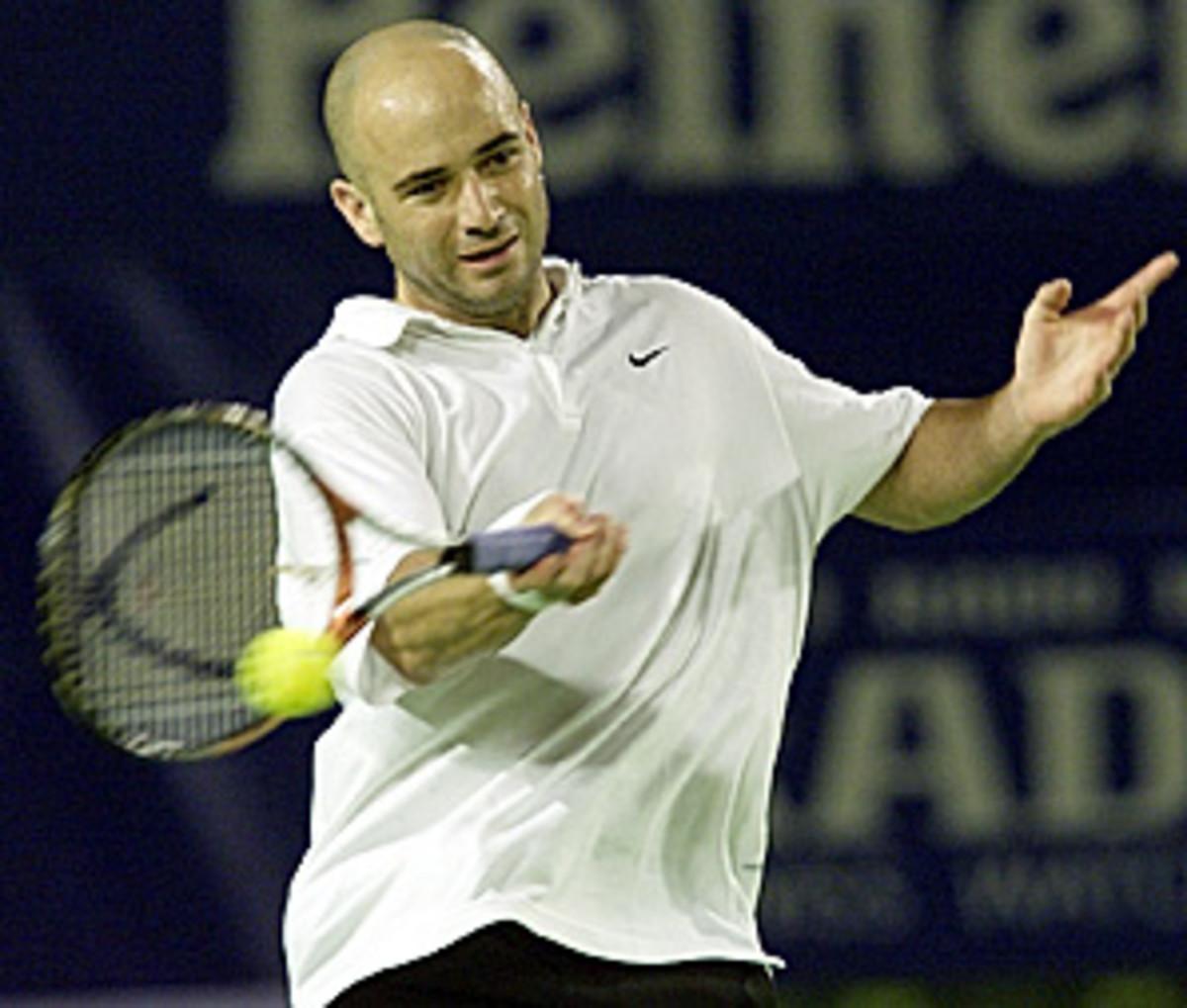
What prompted Andre's revelation?
1. We'll start with the obvious: Andre Agassi's bombshell revelation that he dabbled in crystal meth in 1997. Many of you asked the same question: Why did he choose to admit this in his forthcoming autobiography? The short answer: Who knows? But it seems to me there are two obvious explanations.
First, money. When you accept a multimillion dollar advance, there is an expectation -- expressed or tacit -- that the book will go beyond recounting matches and memories. Controversy sells and Agassi made a sensational revelation to move copies. (You don't recoup a $5 million advance writing about how "Krajicek was serving great that day in Toronto.") Yet this explanation doesn't jibe. Though, yes, Agassi was hammered on a bad real-estate deal, there are plenty of other ways for him to generate income other than trashing his legacy and, as an incensed Rafael Nadal put it, "damaging the sport." (Remember, too, that Agassi's wife accumulated significant wealth in her career.)
The second, less cynical explanation: Confessional to begin with, Agassi took this assignment seriously and offered a truthful, witheringly self-critical warts-and-all self-portrait. Though the crystal meth admission got the fanfare, it was hardly the only bit of brutal candor in the book. Everything from his fraught relationship with his dad to the circumstances of his first marriage come in for close and thoughtful scrutiny.
2. As always, the cover-up is worse than the crime. Like many of you, I'm inclined to agree that Agassi's lie/manipulation is more troubling than the recreational drug use. I was also surprised that, for an allegation so explosive and damning, his account was ambiguous at best.
Once the ATP learned of a positive test result -- it was for a stimulant, I was told, not for crystal meth per se, as Agassi alleges -- the matter went before an independent panel. (The panel consisted of retired federal judges and other disinterested parties with no tennis background; there were no former players, ATP execs, etc.) Agassi did not testify in person, I was told, but plead his case through his letter and through his representatives. The panel "bought" Agassi's explanation, which we now know was a fraud.
Still, the notion the ATP somehow buried the test result or whitewashed Agassi is erroneous. When the World Anti-Doping Agency -- never ones to shy from a publicity grab -- issues a release and demands "the ATP shed light on this allegation," it fuels the confusion.
Just to be clear, in tennis today, neither the ATP nor WTA administers its drug-testing programs. It's done through the International Tennis Federation and WADA. It's not without its problems (see: Hingis, Martina), but there's no conflict of interest, no concern that the tour would be reluctant to punish a revenue-generating star.
Also, given that the offense was more than a dozen years old, Agassi will almost certainly not be fined or penalized.
3. Ending on a happier note ... Though overshadowed by Agassi-gate (is it just reflexive to add "gate" to any scandal?), there was a significant event played last week, the WTA Sony Ericsson Championships. Serena Williams beat Venus Williams in the final and, more important, will finish the year ranked No. 1. Consider this a rare and much-needed dose of sanity.




